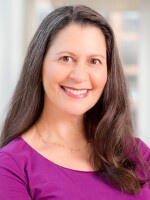ROBERT SIEGEL, host:
This is ALL THINGS CONSIDERED from NPR News. I'm Robert Siegel.
MELISSA BLOCK, host:
And I'm Melissa Block.
Pervez Musharraf was sworn in today for a second five-year term as president of Pakistan.
Unidentified Man: I, Pervez Musharraf, do solemnly swear that I am a Muslim and believe in the unity and oneness of Almighty Allah.
President PERVEZ MUSHARRAF (Pakistan): …do solemnly swear that I am a Muslim and believe in the unity and oneness of Almighty Allah.
BLOCK: In a speech after his swearing in ceremony, Musharraf promised to lift the country's state of emergency in just a couple of weeks on December 16th, a pledge that was quickly welcomed by the White House.
NPR's Jackie Northam is in Pakistan's Islamabad and she tells us the move was expected.
JACKIE NORTHAM: Musharraf has been under a lot of pressure by political opponents here in Pakistan and by the international community to lift the state of emergency. He imposed emergency rule about a month ago and it was one of several measures he took when it became increasingly clear that the supreme court wasn't going to validate his eligibility to serve another term as president.
And at the time he also suspended the constitution, he purged the supreme court and he just started rounding up thousands of political opponents. Now, you know, slowly over the past few weeks, Musharraf has taken several steps to placate critics of his action. He's released thousands of political detainees. He stepped down as army chief of staff. And during his televised address tonight, he said he would also restore the constitution.
BLOCK: Now, what are people making of the timing of this announcement today.
NORTHAM: Well, political analysts here in Pakistan feel that this - coming out with this announcement so soon after he was sworn in as president is a way to try to assert his authority, or at least to show Pakistanis he still has authority. This announcement may be a way for him to show that he's still calling the shots here in Pakistan, but in no question, he is in a much weakened state now.
BLOCK: At the same time, he did purge the courts, packed them with his own appointees, same thing with the military, right?
NORTHAM: That's right, yes. A newly formed supreme court was all handpicked by Musharraf. They helped him secure his position - another five-year term in office as president. The new army chief of staff, General Ashfaq Kayani, was chosen by Musharraf and the two men are very close. Musharraf has allowed many of the electronic media outlets back on air. But the journalists here will tell that they have to be very careful what they say about him.
BLOCK: Do you think that lifting the state of emergency, restoring the constitution, that those things are enough to get opposition parties on board for elections next year?
NORTHAM: Well, the main parties here, the ones headed by Benazir Bhutto and Nawaz Sharif, have indicated that, you know, lifting of emergency rule was a small positive step. But they have yet to decide whether they're going to participate in the elections and they're supposed to make a final decision over the next couple of days. But Musharraf made it clear during two speeches today that the elections are going to go ahead no matter what. He said they would be free and fair and transparent. He also said removing the state of emergency levels the playing field, even though it will be lifted just a mere three weeks before the elections.
There's a bit of concern among the opposition parties that they will be seen as legitimizing the election and Musharraf's maneuverings over the past few weeks if they take part.
BLOCK: One last thing, Jackie. President Musharraf in his inaugural address today had some sharp words for Western diplomats. He talked about their unrealistic and impractical obsession with your form of democracy, human rights and civil liberties. What did you make of that?
NORTHAM: Well, it was interesting because obviously all the diplomats in this community here and Islamabad where there, many Western diplomats as well. And it was just really a statement to say, you know, we have to go at our own pace here. It might not look like what you see in America, you see in Britain or in any other Western country and that. But he made it very clear that this is not going to be as clean cut as they would like it. There are going to be ups and downs as they've seen over the past little while.
BLOCK: NPR's Jackie Northam in Islamabad. Jackie, thanks very much.
NORTHAM: Thank you, Melissa. Transcript provided by NPR, Copyright NPR.







